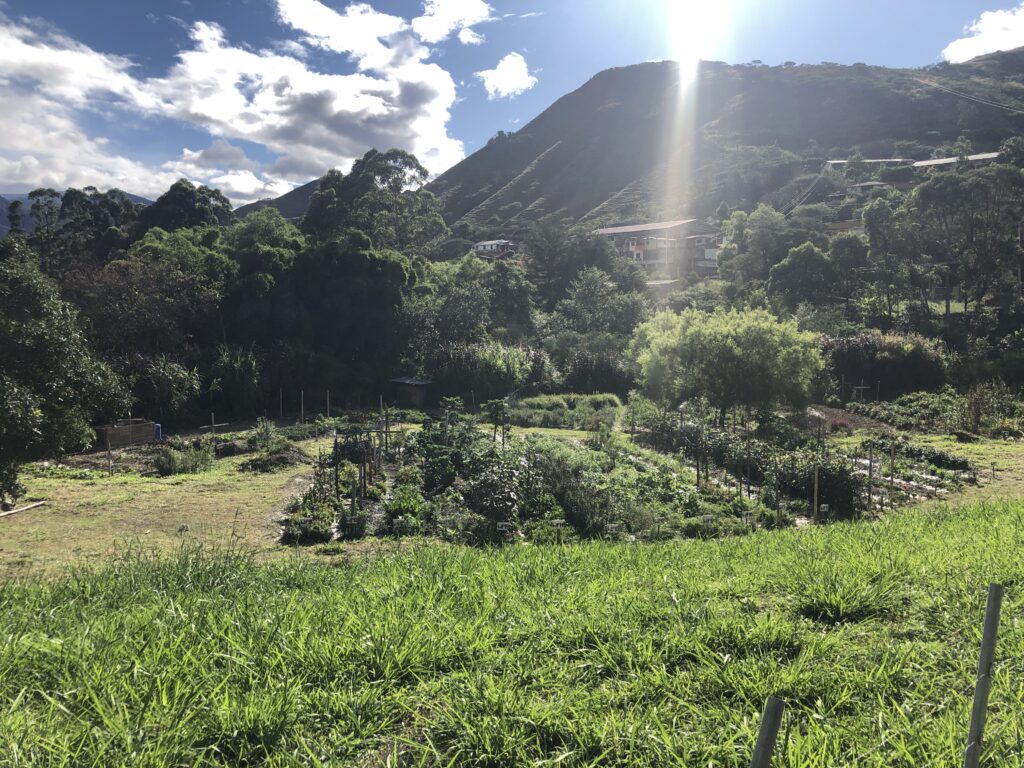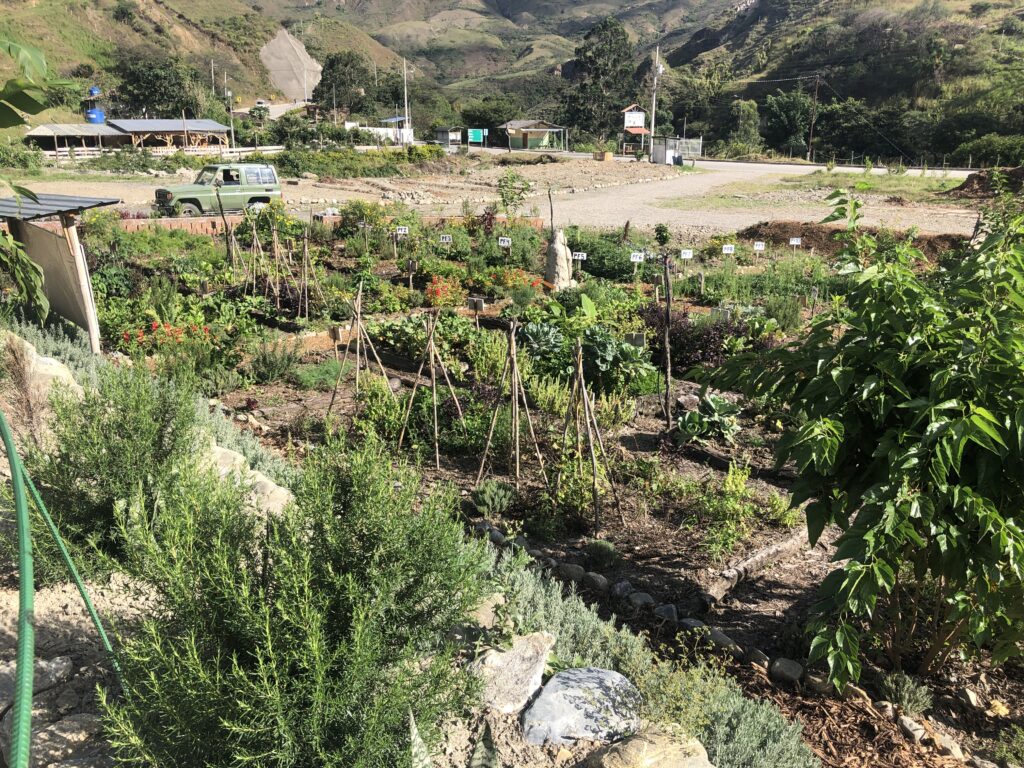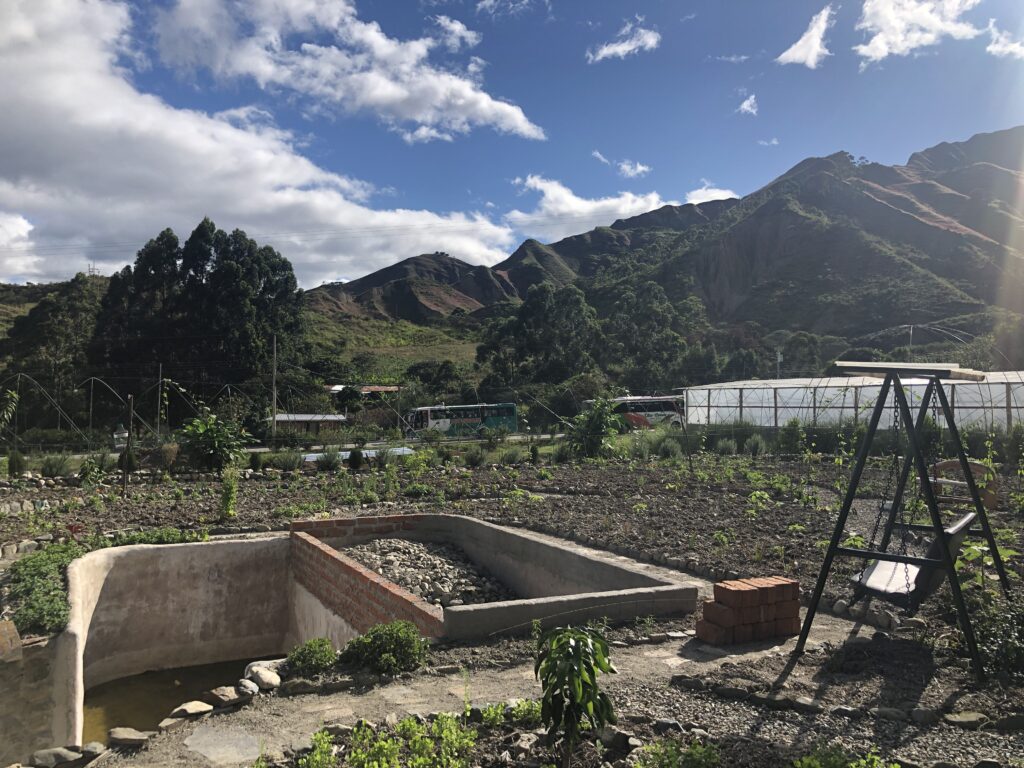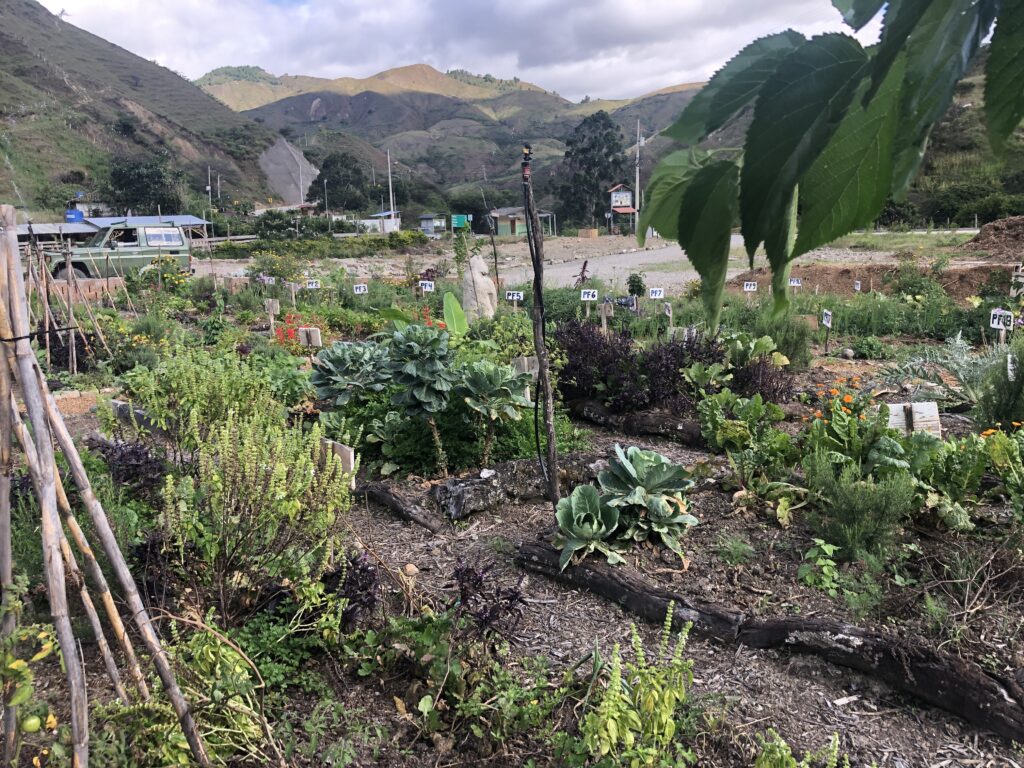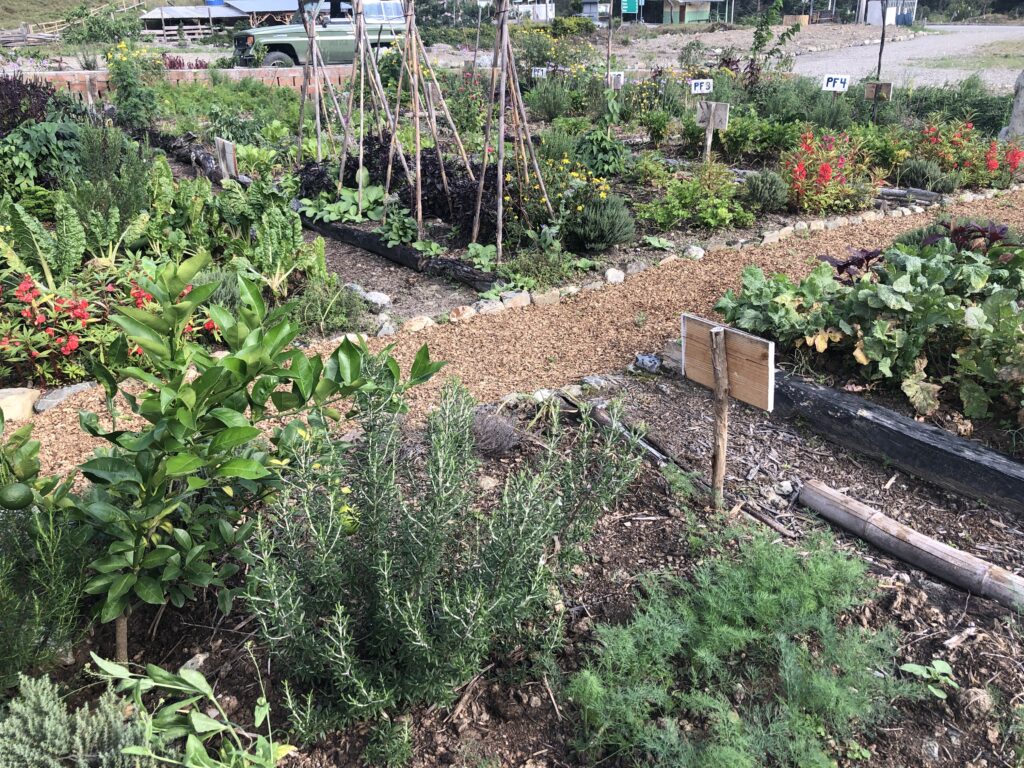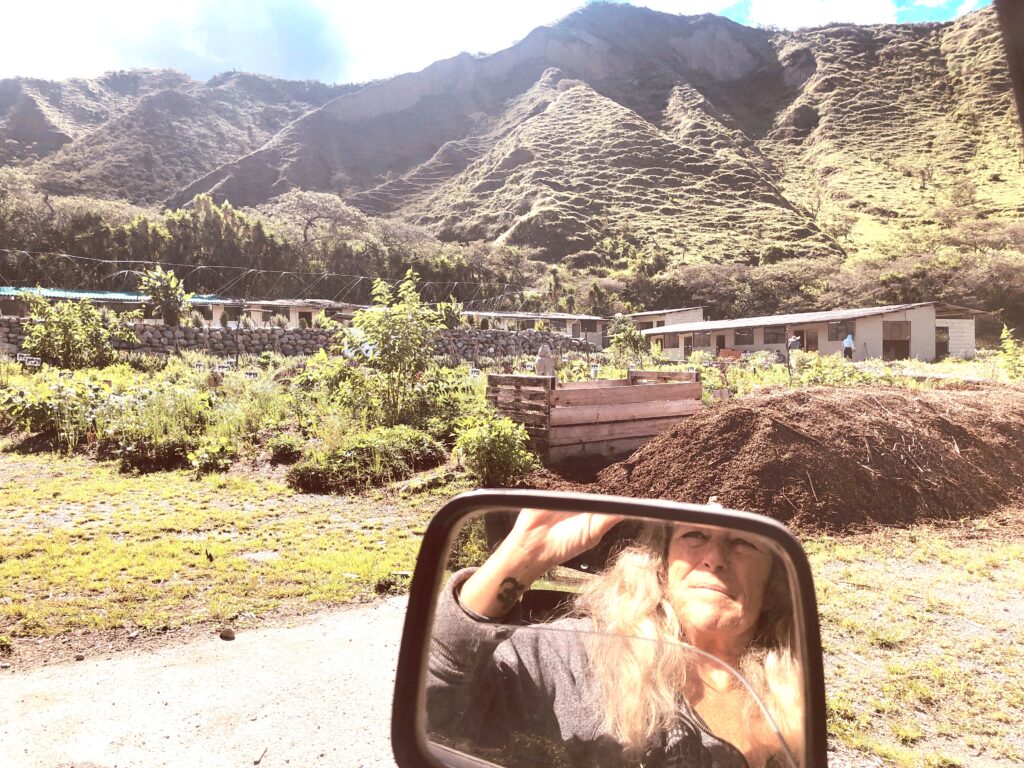Welcome to the introduction of Lesson One!
Before we dive into the course material, I’d like to share some insights about Living Ground and the Project. The course you’re embarking on serves as a foundational pillar for the mission and vision of the Living Ground Project. In essence, the Project is a living manifestation of this course, which will help you grasp our purpose more deeply. We’ve carefully designed each course to ensure that the mission of Living Ground spreads across the earth like an interconnected web. At its core, our focus is on restoring health – not just our own, but also that of the soil beneath our feet. As we progress through this course, you’ll discover how these elements intertwine and contribute to a greater vision of sustainability and self-reliance.
Introduction to the Living Ground Project
Nestled in the lush landscapes of Southern Ecuador, the Living Ground Project serves as a vibrant example of holistic living and sustainable practices. This initiative is rooted in a comprehensive series of courses designed to educate and inspire individuals about the interconnectedness of living systems. These foundational courses cover an array of topics including live blood analysis for laypeople, soil
microbiome
The microbiome refers to the diverse community of microorganisms—bacteria, microbacteria, fungi, and other microbes—that reside in various parts of our body, particularly in the gut. These microorganisms play essential roles in numerous bodily functions, from aiding digestion and synthesizing vitamins to modulating the immune system and protecting against pathogens. The gut microbiome is the most studied and arguably the most impactful microbiome in the human body. It is home to trillions of microorganisms that have a symbiotic relationship with their host. These microbes help break down food components that the human digestive system cannot process on its own, such as complex carbohydrates and fiber, converting them into beneficial compounds like short-chain fatty acids. These compounds contribute to gut health and overall well-being. Beyond digestion, the microbiome influences other areas of health. It is involved in synthesizing essential vitamins, like B vitamins and vitamin K, which are crucial for various bodily functions including blood clotting and energy production. The gut microbiome also plays a role in regulating the immune system, teaching it to differentiate between harmful pathogens and beneficial microbes. This helps in preventing autoimmune diseases and allergies. The balance of the microbiome can be affected by various factors including diet, antibiotics, lifestyle, and illness. An imbalance in the microbiome, known as dysbiosis, has been linked to a range of health issues, including irritable bowel syndrome (IBS), obesity, diabetes, and even mental health disorders like depression and anxiety. For this reason, maintaining a healthy microbiome is considered vital for overall health. Probiotics and prebiotics are often recommended to support a healthy microbiome. Probiotics are live beneficial bacteria found in fermented foods like yogurt, kefir, sauerkraut, and supplements, while prebiotics are non-digestible fibers that feed these beneficial bacteria, found in foods like garlic, onions, bananas, and whole grains. A balanced, varied diet rich in these foods can help maintain and improve the health of your microbiome. In summary, the microbiome is a complex and essential ecosystem of microorganisms that significantly impacts many aspects of health, from digestion and nutrient absorption to immune function and mental well-being. Maintaining a healthy microbiome through a balanced diet, lifestyle, and avoiding unnecessary antibiotics is crucial for overall health and vitality.Microbiome
Our Educational Vision
The Living Ground Project Site is an evolving educational center that embodies the principles taught in our courses. Here, we bring theory into practice, offering an immersive experience through eco-tourism, apprenticeships, and hands-on workshops. Whether you are exploring the market gardens, touring our Secret Garden, or engaging in our commercial kitchen and apothecary, you will see firsthand how our methods cultivate health and sustainability. Our Microbe Café and Natural Health Food Store will provide fresh, microbe-rich foods, fostering a deeper understanding of the relationship between soil health, human health, and community wellness.
An Ecosystem of Learning and Growth
Our project site is designed to be a living, breathing ecosystem where learning is integrated with everyday activities. In our Market gardens, we use microbe compost produced on-site to grow nutrient-dense foods. The commercial kitchen and apothecary serve as creative hubs where we share recipes and produce healthful products. The Secret Garden, with its diverse array of plants, serves as a living classroom, demonstrating how to cultivate and use plants for both nutrition and medicine.
Join Us on This Journey
As the Living Ground Project continues to grow, we invite you to be a part of this transformative journey. Our courses provide the foundational wisdom, while our project site offers a hands-on platform for applying this knowledge. Students will receive discounts to come and visit us at Living Ground, either for educational tourism or apprenticeships. Whether you visit us for a workshop, stay for an apprenticeship, or simply wish to enjoy the beauty and bounty of our eco-tourism offerings, you will find a community dedicated to fostering a sustainable and healthy future.
The Soil Microbiome & Homesteading Course is a transformative journey designed for those eager to understand the complex and fascinating world of soil biology. Having completed the intensive Dr. Elaine Soil Food Web Consultancy program—a four-year endeavor requiring significant investment—I’ve experienced firsthand how profoundly this knowledge can reshape one’s understanding of nature. The course challenges conventional approaches, urging practitioners to reconsider their strategies in gardening and soil management. It highlights a crucial insight: even natural healing methods and organic practices can mirror the intent of large-scale agriculture and conventional medicine, where the focus remains on combating issues rather than fostering systemic health.
This course aims to shift that perspective by focusing on the soil microbiome, an often-overlooked yet vital ecosystem beneath our feet. Tailored specifically for laypeople, the course demystifies the science, making it accessible to anyone interested in sustainable gardening and effective homesteading. Participants will learn to cultivate beneficial microbes, enhancing soil health naturally. By teaching practical skills such as assessing microbial life using a microscope and creating environments where these organisms can thrive, the course equips gardeners, farmers, and enthusiasts with the tools to nurture their gardens sustainably.
The importance of getting this information out to broader audiences cannot be overstated. Healthy soil microbiomes are foundational to robust ecosystems and productive gardens. By fostering an understanding of this intricate web of life, the course empowers individuals to make informed decisions that promote ecological balance and enhance the vitality of their soil. This knowledge is not just transformative for individual gardens but also contributes to a broader movement towards sustainability and environmental stewardship. The goal is to inspire a shift in how we interact with the land, encouraging practices that support natural processes and improve the overall health of our ecosystems.
Welcome to Soil Mircobiome & Homestead Gardening… hit continue to enter course
